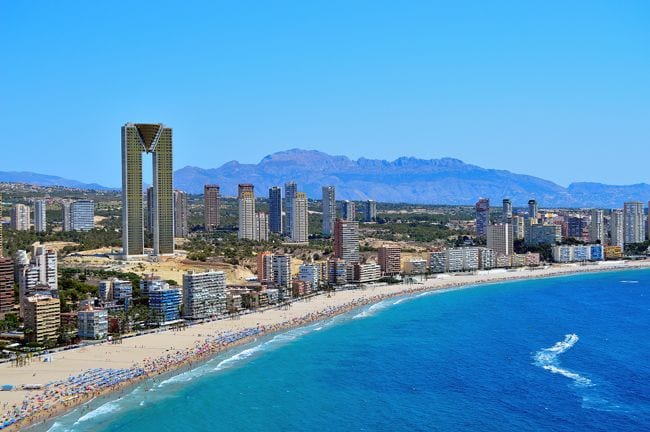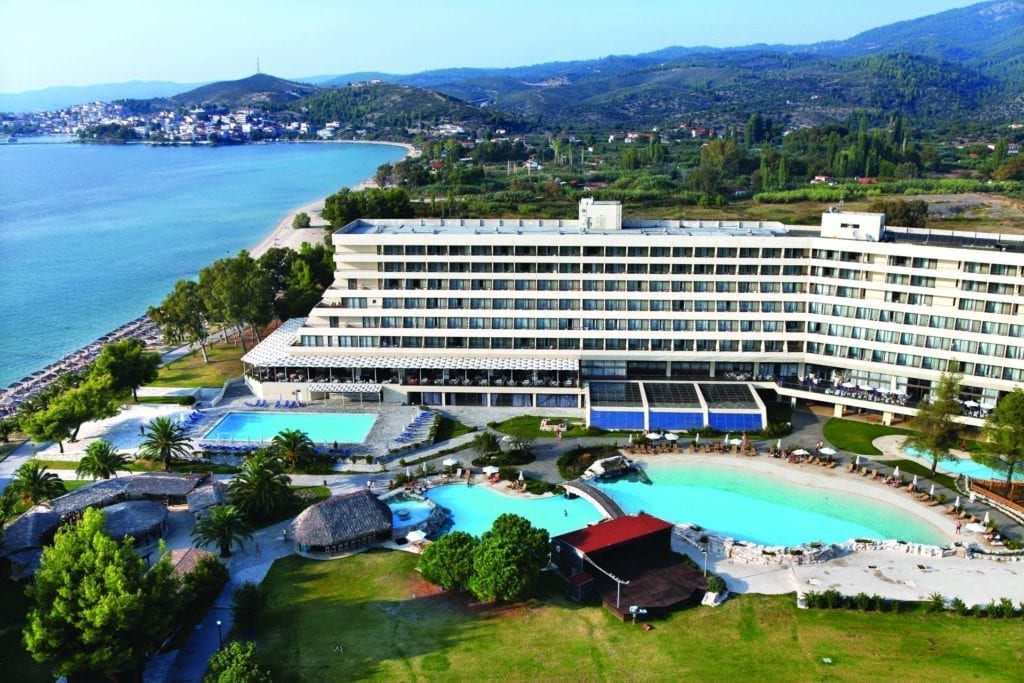The Government has designed a plan to return to the “new normal” in four phases, which will run until the end of June and which will vary by region.
Category: Hospitality
Benidorm’s Hoteliers Consider not Opening until 2021
The current situation has led hoteliers in Benidorm to consider the option of not opening their establishments until 2021 since their income will not cover their expenses.
The current situation has led hoteliers in Benidorm to consider the option of not opening their establishments until 2021, or to open only a small part of them, so as not to incur greater losses due to the lack of footfall, to be able to cover the bare minimum of their operating costs.
This has been highlighted by Exceltur, which has affirmed that this destination, like the Balearic Islands, depends a lot on foreign tourism. The restriction of intra-European traffic for the next few months, the late relaxation of measures in the tourism sector and the implementation of health security measures on beaches will be very dissuasive for tourists. The consequences could be lethal and will affect tourism activity more than any other sector of the Spanish economy.
The Hotel Socimi Elaia Earned Double and Invoiced 40% More in 2019
Elaia Investment considers that it is ‘extremely difficult’ to evaluate the impact of the pandemic crisis on its business this year.
The Socimi Elaia, which specialises in hotel assets, closed 2019 with a profit of €5.2 million, whereby doubling the result recorded in the previous year, when it earned €2.4 million. Elaia considers that it is “extremely difficult” to evaluate the impact of the pandemic crisis on its business this year.
The divestment process of the company, which is controlled by the Luxembourg group Batipart, has a lot to do with these results. Swiss Life Asset Managers acquired two hotels in Mallorca -Icon Valparaíso and Vistama-, one hotel in Gerona (Monterrey) and an apartment complex in Menorca (Eden Binibeca), which according to market sources are worth more than €50 million.
Hoteliers Warn of Losses of €124 Billion if Closures Continue until December
The progressive opening of the sector by December would result in losses of €124 billion. In that case, the recovery of the industry would not arrive until the first four months of next year.
Spanish hoteliers are warning that keeping their establishments closed until the end of the year is “inconceivable ” and that this would mean a loss of competitiveness for the sector. “In Spain, the progressive opening of the sector by December would result in losses of €124 billion. That would be devastating for the sector,” explained Gabriel Escarrer, CEO of Meliá, according to Expansión.
For Escarrer, this scenario assumes that the recovery of the industry would not come until the first four months of next year, meaning it may “lose out” on Christmas 2020 and Easter 2021, both key dates in the hotel industry.
The Former Adler Hotel now has a Swiss Tenant Following its Conversion into Offices
The consultancy firm CBRE has been responsible for the commercialisation of the building, as well as for its management and building work.
CBRE has been responsible for the commercialisation of the building, as well as for its management and building work. The property, which is located at the intersection of two iconic streets in Madrid, Velázquez and Goya, is owned by a private investment firm.
The building, formerly known for housing the Adler Hotel, spans more than 2,000 m2 (2,163 m2) and now comprises offices equipped with the latest technologies.
Velázquez 33 will host the new headquarters of a Swiss multinational, specifically, a security provider that offers secure solutions and services for identification, traceability and authentication.
Hotel Revenues Fell by 41% in March
Hotel occupancy rates fell by more than 45% in March, after just 15 days of confinement, and the average revenue per room decreased by 41%.
On Thursday, Spain’s National Institute of Statistics (INE) published the first official figures showing the impact of the coronavirus on the Spanish tourism market. According to this data, in the month of March alone, with lockdown measures decreed on the 14th of the month following the State of Emergency, hotels in Spain saw a 41% decrease in their revenues, whilst occupancy rates fell by more than 45%.
In March, the average daily revenue per available room (RevPAR) -which is determined by the occupancy rates recorded in hotel establishments- stood at €29.7, down by 41% compared to the same period in 2019. The average daily rate for each occupied hotel room (ADR) was €78 in March, which represents a decrease of 4.2% compared to the same month of 2019.
Belterra Buys the Greek ‘Porto Carras’ Resort for €200M
The complex spans a surface area of 1,763 hectares, including nine kilometres of beaches and 990 rooms distributed across three five-star hotels.
Technical Olympic has agreed to sell the five-star Greek tourist complex Porto Carras for €200 million to Belterra Investments, which belongs to the Ivan Savvidis group, according to Europa Press.
The resort spans a surface area of 1,763 hectares, including nine kilometres of beaches and 990 rooms distributed across two five-star hotels, Melitón and Sithonia, and the luxury boutique hotel Villa Galini. This operation has been advised by the Greek subsidiary of Cushman & Wakefield.
Tourist Homes Expect Losses of €2.9 Billion, but Predict a Recovery in 2021
In an interview with Brainsre.news, Tolo Gomila, the President of Fevitur, has warned that the losses on tourist homes due to Covid-19 already amount to €448 million. And he believes that they will reach €2.9 billion in total.
The Covid-19 pandemic has forced the suspension of almost all the economic and productive activity in the country. Spain is facing its greatest health crisis in decades, which will undoubtedly lead to a new economic crisis. Covid-19 has affected every sector of the economy, but one of the hardest hit has been tourism, which has been seriously affected by restrictions on the movement of people, the closure of hotels and homes for tourist use, ERTEs and the mass cancellation of accommodation, events and flights.
Tolo Gomila, President of the Spanish Federation of Tourist Home and Apartment Associations (Fevitur), has indicated, in an interview with Brainsre.news, that this segment of the economy expects to incur losses of €2.9 billion due to the pandemic. As such, it has demanded new measures from the Executive to address the crisis that has caused coronavirus in the country and the rest of the world.
eDreams Agrees New Financing Conditions with the Banks
The travel agency has signed an agreement with the banks to ensure that obtaining the main line of credit for its financial year 2021 is not linked to its reduction objectives for gross debt.
The online travel agency eDreams Odigeo has announced that it has signed an agreement with the banks to ensure that obtaining the main line of credit for its financial year 2021 -which runs from April 2020 to March 2021- is not linked to the reduction objectives for gross debt.
“eDreams is a very strong company, both financially and culturally, and the exemption granted by our banks demonstrates this. We have managed the business with prudence, which will allow us to overcome these difficult times”, explained Dana Dunne, CEO of eDreams, in a statement. In this sense, he has ensured that the senior debt corresponding to 2023 will continue to be paid.
Europe’s Hotels will take Four Years to Return to their Pre-Crisis Profitability, says Barclays
Analysts at the British bank expect large European hotel chains, such as IHG and Accor, to see a 50% reduction in their revenues.
The European Union’s hotel industry will take three to four years to return to the profitability levels recorded in 2019, according to a report by Barclays.
“That forecast is based on the sharp deterioration that private investment and employment are expected to suffer in the short term, which are the factors that most affect profitability. It will be compounded by the fact that borders will now be closed for longer than originally expected in order to guarantee safety during the health crisis”, stresses the study.

 Portugal
Portugal  Italy
Italy  Greece
Greece 








